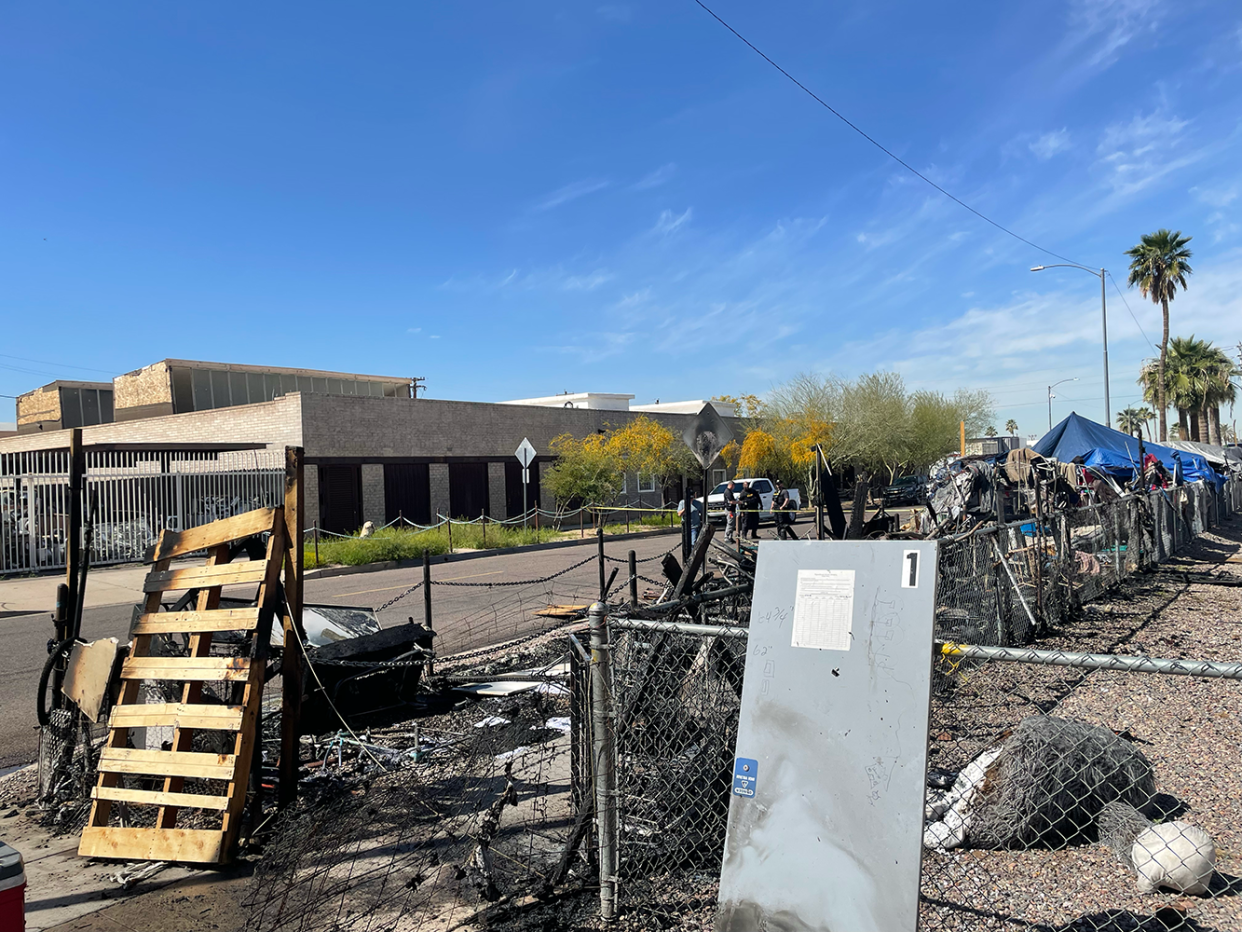'The Zone' is an epic fail. All because Phoenix misread a federal court ruling

Phoenix city leaders were naively confident – or perhaps just stubbornly defiant – of their hands-off policy on the hundreds of homeless people who set up encampment right outside downtown and transformed the area into a cesspool of squalor and crime.
Taken to court by fed-up residents and businesses, city leaders took what was a weak defense and doubled down:
They instituted policies using a liberal reading of a federal ruling that restricted cities from prosecuting the homeless for sleeping in public spaces.
They asserted Phoenix’s right to direct resources, including law enforcement, as they see fit.
They trotted out a police commander who told the court that there was no directive to officers to not enforce the law or make arrest, contradicting the city's stated policy stances and what officers purportedly told concerned residents.
The defense blew up spectacularly.
A judge this week found the encampment known as "The Zone" represented a public nuisance that's dangerous to public health and ordered the city to take down tents and other temporary structures, pending a trial set for late July.
Phoenix epicly misread the Boise ruling
A charitable view of Phoenix’s stance is that it bent over backwards to carry out the spirit of Martin v. City of Boise, a 2019 ruling by the 9th U.S. Circuit Court of Appeals that hit on the notion that criminalizing the status of homelessness constituted cruel and unusual punishment.
That is, some acts that may be unlawful – notably, sleeping in public – are unavoidable, or involuntary, when someone is without a home.
(The ruling noted that at least one U.S. Supreme Court justice, Byron White, posited in a Texas case about public drunkenness that an alcoholic who's homeless may mount a defense of cruel and unusual punishment on the basis that "resisting drunkenness is impossible and that avoiding public places when intoxicated is also impossible.")
Martin invalidated Boise's practice of prosecuting homeless individuals who were sleeping in public places on charges of unlawful camping and disorderly conduct.
Phoenix went considerably further in its overlooking of crimes. In so doing, it conflated voluntary criminal acts with involuntary ones.
Editorial: Phoenix must clean up 'The Zone' now
But the appellate judges in Martin made clear theirs was a “narrow ruling.”
It applied only when the number of homeless is greater than the number of available beds at the shelter.
“(O)ur holding does not cover individuals who do have access to adequate temporary shelter, whether because they have the means to pay for it or because it is realistically available to them for free, but who choose not to use it.”
The city can't ignore lawbreaking
Maricopa County Superior Court Judge Scott Blaney cited the point in his order.
The 9th Circuit judges went on to say that the ruling does not prevent municipalities from restricting sleeping in public spaces to certain hours, or from prosecuting those who violate it.
After ruling: Phoenix mayor stresses indoor solutions
More importantly, nothing prevents municipalities, or frees them from their obligation, to enforce other laws, from drug use and sales, prostitution and fighting to defecating in public or blocking public rights of way – the very crimes that fed residents’ and business’ ire, which led to their lawsuit against Phoenix.
In the preliminary injunction, Blaney also noted that while Phoenix may have discretion on how to comply with public nuisance statutes, the city cannot wholesale ignore compliance.
That is, Phoenix must do its job to safeguard public spaces from dangerously unsafe and unsanitary conditions.
And by extension, for residents and businesses in or around The Zone, to ensure equal protection under the law.
The order represents an opportunity for Phoenix to pivot from its misapplication of Martin v. City of Boise.
Mayor Kate Gallego said she understands “the court’s direction that speed is of the essence here” and acknowledges that more needs to be done to help unsheltered people.
She and other Phoenix leaders are now on the clock to show they’re true to the words.
Reach Abe Kwok at akwok@azcentral.com. On Twitter: @abekwok.
This article originally appeared on Arizona Republic: 'The Zone' is an epic fail of how Phoenix misread a homeless ruling

